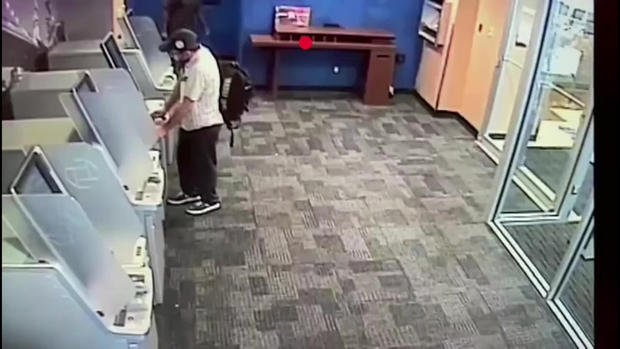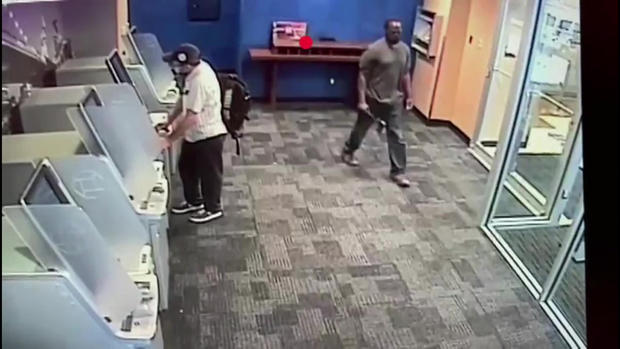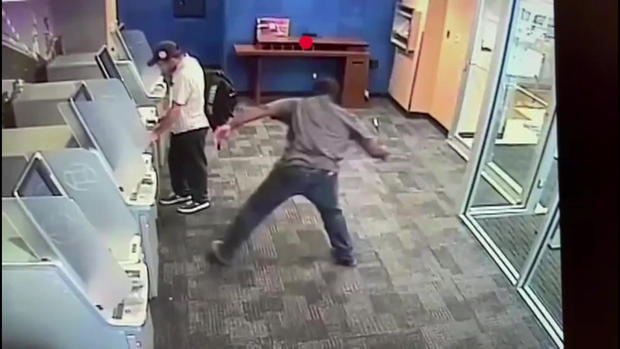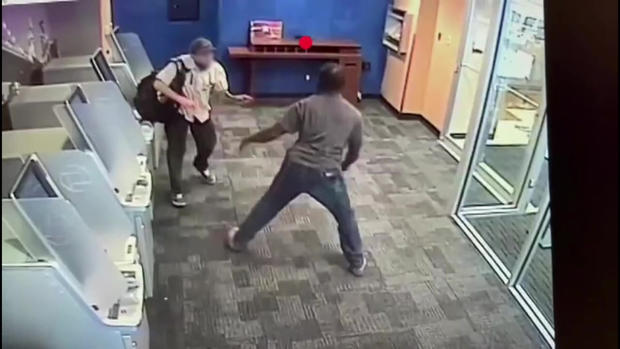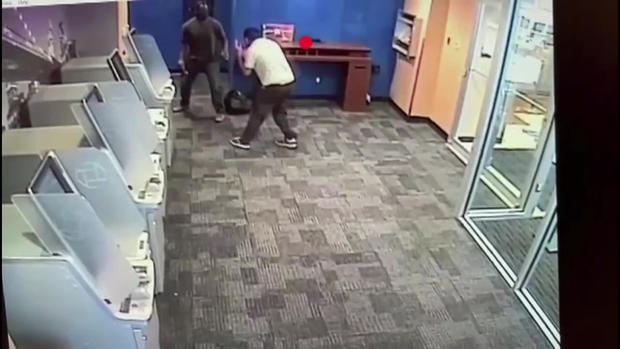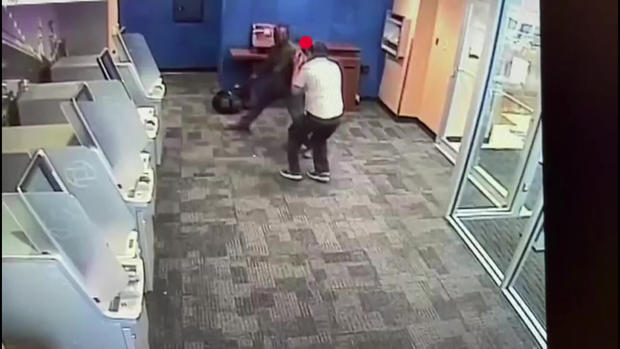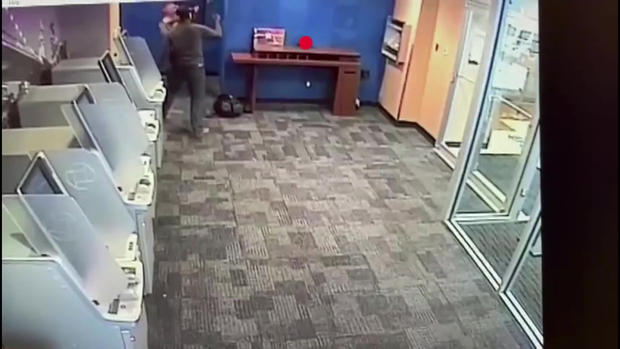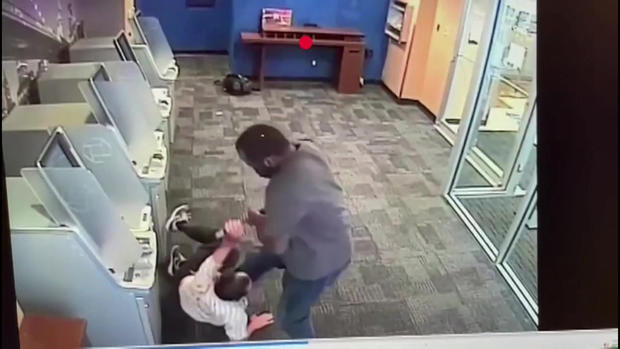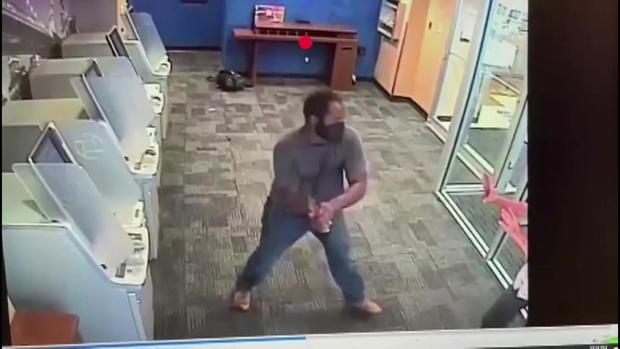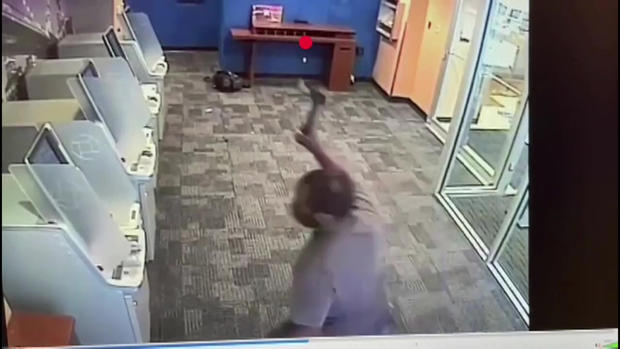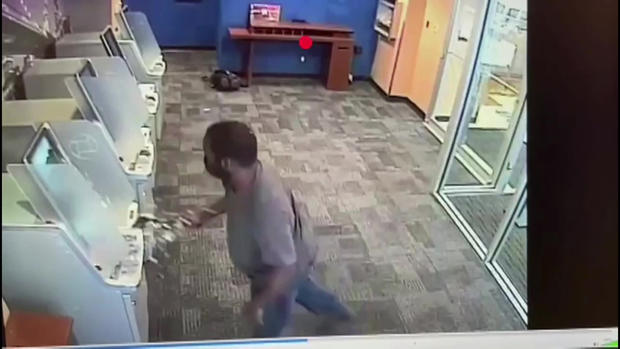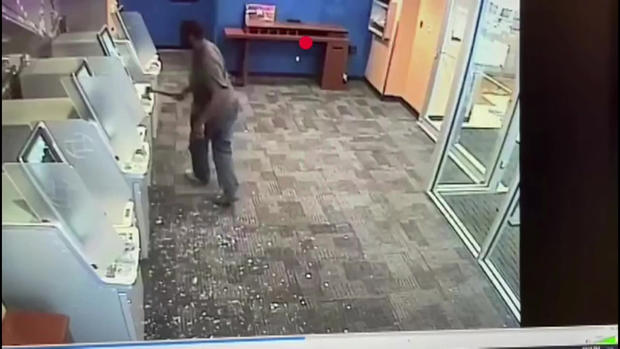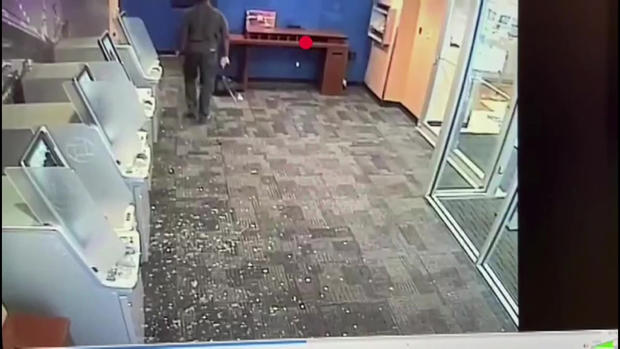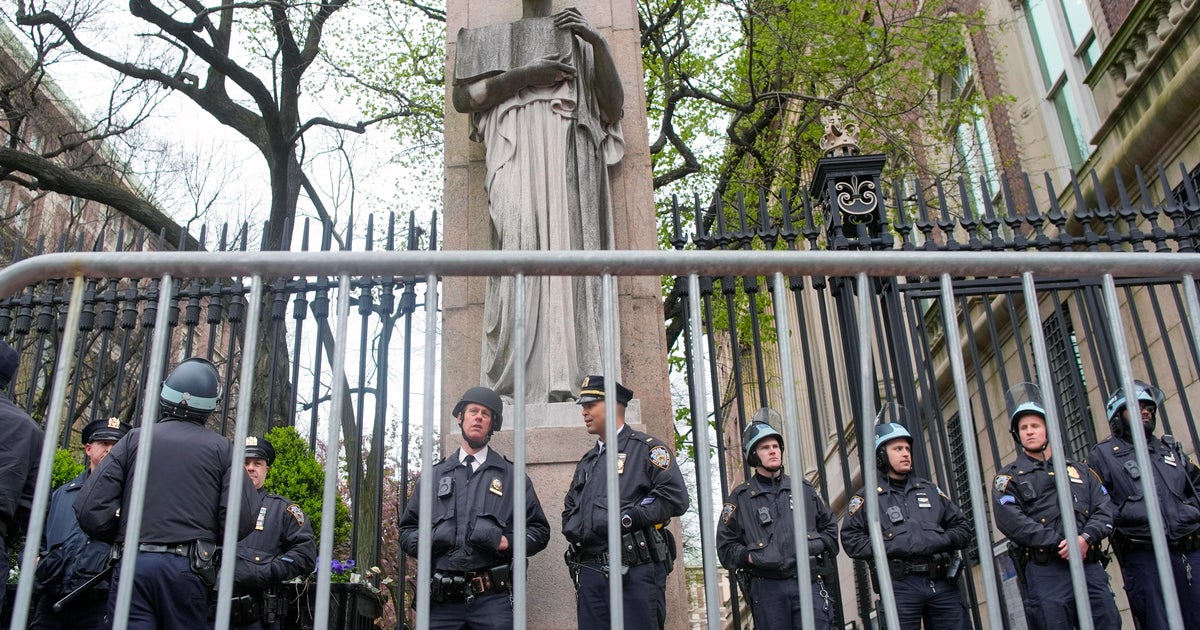CBS2 Investigates: Why Are So Many Repeat Offenders In Need Of Mental Health Services Back On NYC Streets?
NEW YORK (CBSNewYork) - From the subway to the street, NYPD data shows crime is up in New York City more than 6% compared to last year.
In some of the unprovoked attacks, we've learned the suspect has a criminal past, with victims that have sounded the alarm before.
CBS2's Lisa Rozner investigates the troubling pattern.
Scarlett Garcia, 2, was adorably social back in August, days after surveillance video showed 32-year-old Shoshannah Johnson allegedly shove her to the ground and skip away.
But months later, her mother says even though she did not suffer a permanent injury, she has sustained an emotional one.
"She's afraid to go near new people or, like, try to interact with people," mother Sahara Bernard said. "She'll run and scream."
In November, Johnson was arrested after Scarlett's mom saw her on the street.
But she was released as the charges, including assault and endangering the welfare of a child, don't qualify for bail. Johnson was already out on several bench warrants, including allegedly punching a passerby in the face weeks earlier and the possession and sale of cocaine.
Rozner was there when she finally appeared in court. Johnson's uncle and lawyer would not speak with Rozner.
"You don't want to talk about anything you've done on your end to try to help?" Rozner asked.
Johnson's attorney said they had no comment.
A Legal Aid spokesperson says the case has now been transferred to a mental health court. But why wasn't that step taken sooner?
Former prosecutor Hermann Walz, with the CUNY John Jay College of Criminal Justice, is not involved in the case, but offered this:
"Our system isn't designed to say, 'How do we help people?'" Walz said. "So many cases are, 'How do I just get rid of them?' Right? If you're not shot, or no gun or something, or how do I get rid of - especially on a misdemeanor."
In the last year, several people facing charges for shocking, seemingly unprovoked attacks were previously released without mandated treatment. In October, Anthonia Egegbara, diagnosed with schizophrenia, allegedly pushed a passenger into a moving subway train in Times Square. Months earlier, she allegedly beat Jasmine Robles on a train. It's one of seven arrests since 2018.
In August, Aaron Garcia allegedly used a hatchet to attack a man using an ATM downtown. He'd been the subject of multiple emotionally disturbed person calls and had bench warrants for assault.
In May, Alexander Wright allegedly sucker-punched an Asian woman in Chinatown, leaving her unconscious. His more than 40 arrests go back more than three decades. Just days before the attack, he pleaded guilty to throwing hot coffee in a traffic officer's face. His lawyer says he has a diagnosed mental illness.
"When he is discharged, then he gets a MetroCard and, like, a week's prescription," said Casey Dalporto of New York County Defender Services.
Dalporto admits from there, it's near impossible for him to go from homeless to housed. Wright is now on Rikers Island getting medication but is set to be released again in February. The Manhattan District Attorney has denied requests for release incumbent upon a treatment program.
"He's someone who would actually keep up with that. He's never been given that opportunity before," said Marie Calvert-Killbane, of New York County Defender Services.
In Manhattan, misdemeanors are not eligible for mental health court, which mandates longer treatment. Public defenders say the few cases that do qualify must go through a rigorous vetting process.
"It takes an average of 331 days for someone to even be admitted into mental health court," said public defender Eliza Orlins.
In 2020, there were more than 20,000 criminal court filings in New York County. Only four made it to mental health court.
Other boroughs see slightly more: 51 in the Bronx, and 12 in Queens.
"Fifty percent of the population at Rikers Island live with a mental health condition. Fifty percent of the population at Rikers Island live with a substance use disorder," said Jeffrey Berman of the Legal Aid Society.
Prosecutors decide whose cases are considered for mental health court. That's why some state lawmakers are advocating for the "Treatment Not Jail Act" that would instead give judges discretion to order judicial diversion programs.
Mayor-elect Eric Adams wants to add criteria for judges to withhold bail if defendants have a history of violent crime or pose an imminent threat.
Incoming Manhattan District Attorney Alvin Bragg Jr. worries there's no objective way to predict who is dangerous that early in a case.
For example, he says a 2014 report found in Manhattan, "at the bail stage for misdemeanor offenses, Black defendants were 20% more likely than similarly situated whites to be detained."
"Dangerousness is often associated with color, and we've seen that play out throughout the history, you know, both nationally and locally," Bragg said.
Rozner spoke with former prosecutor Alissa Heydari, who is the deputy director at the Institute for Innovation in Prosecution at CUNY John Jay.
"Why does it take someone almost getting killed to get them behind bars or take them away from society?" Rozner asked.
"Again, I think that goes to resources ... You will often have a prosecutor - and I've had this situation - where you see somebody who's really dangerous, or their history is disturbing, so you're concerned, but the only crime you have in front of you is a misdemeanor assault," Heydari said.
For now, Egegbara and Garcia remain in Rikers and are awaiting the results of exams to determine whether they are fit to stand trial.
Johnson, who is homeless, is out. Bernard has an order of protection against her, but fears it is not enough.
"I was relieved until I got the phone call from the DA," Bernard said.
And without supportive housing and expanded mental health services, public defenders say using Rikers alone to provide treatment is a prescription for recidivism.
Adams supports increased services for mental health and substance abuse, and is advocating for closed outer borough hotels to be converted into supportive housing.
As for mental health court, the incoming Manhattan DA says he's working with clinicians to ensure more cases get a chance to be heard there.
